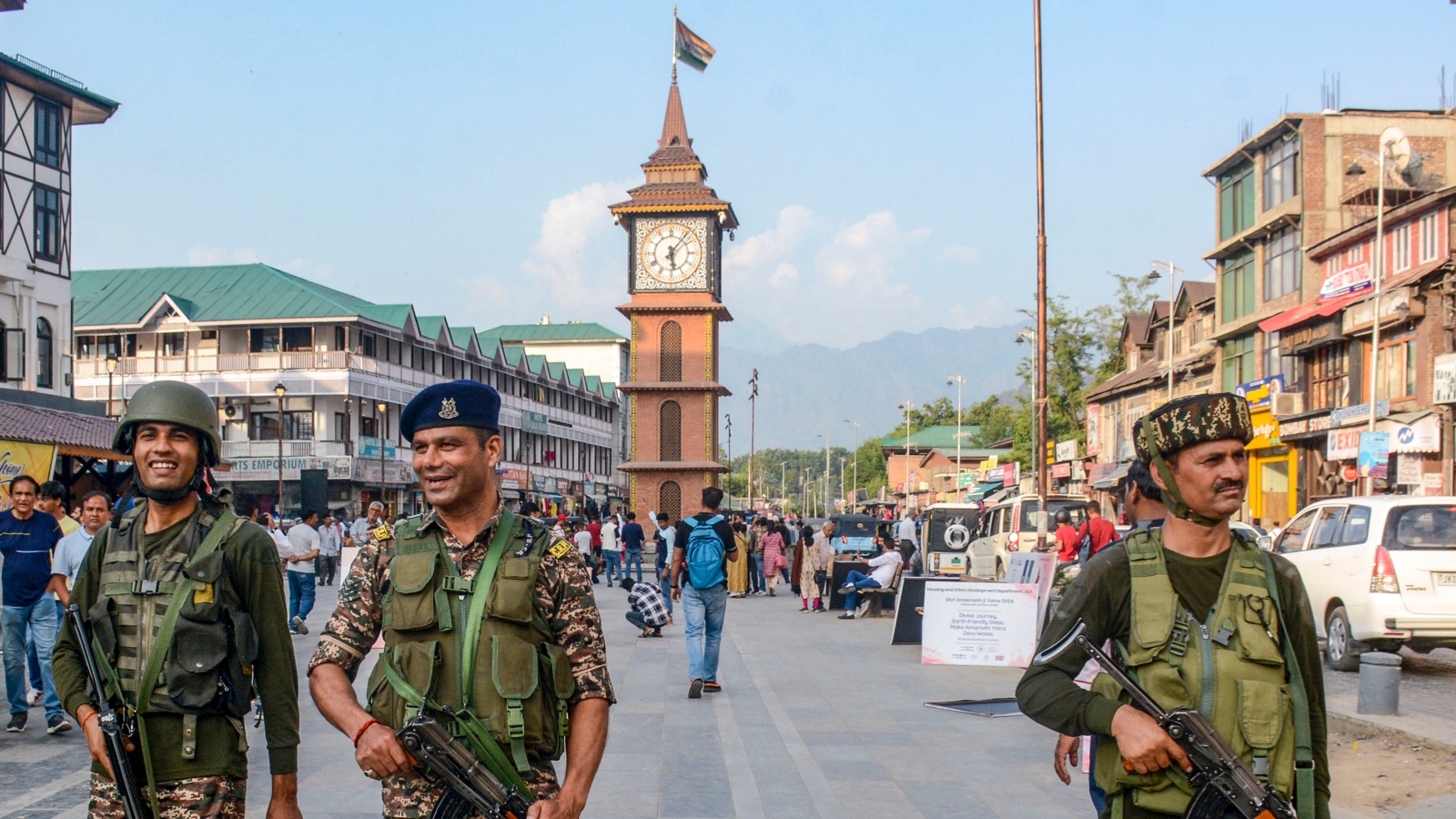Poet Faiz Ahmad Faiz’s lines, “Qatal gahon se chun kar hamare alam, Aur niklenge ushaak ke quafile (the caravan of patriots will march collecting the flags from the hands of martyrs on the battlefield)”, remind us that the most valuable tribute to the 1,608 J&K Police, 511 CRPF officers and thousands of other force brave hearts martyred fighting terrorists since 1989 is the massive decline in Valley terrorism since 2019. As the fifth anniversary of Article 370 abrogation approaches, let’s honour their memory by remembering the five reasons for better prospects for peace (Aman ki Alamat) in J&K:
This Mahabharata’s advice of Dharmo Rakshati Rakshitah (the system protects those who protect the system) was ignored by J&K’s politicians because special constitutional status allowed a divergence between what they said and did. The abrogation of Article 370 answers the 1950s call in Parliament by Syama Prasad Mookerjee of “Ek desh me do vidhan, do pradhan, do nishan nahin chalenge” (One nation cannot accept two constitutions, two heads of state and two flags).
This Article greatly contributed to keeping J&K politics oligopolistic, dynastic, and stale. We remember the hopes that filled our hearts with the 1996, 2002, 2008, and 2014 election victories, but we were left disappointed. Future J&K elections will be held under the Indian Constitution and have new electoral thresholds, ballot structures, and context. This abrogation helps new politicians and parties who use the “civilised civil war” of democracy to convert conflicts into trade-offs through a new slate of ideas that blunt passions, create interests and forge compromise.
Cross-border military strikes
The Pakistan military believed cross-border military strikes by India were an impossibility after it tested nuclear bombs. But the Uri and Pulwama responses answered the decades-old prayers of the security leadership in J&K for the hot and cold pursuit of terrorists. Those prayers weren’t war-mongering but a recognition that Pakistan’s terror factory wouldn’t back down without new calculations: No consequences for their J&K Assembly attack in 2001 led to bigger attacks on the Indian Parliament in 2001 and Mumbai in 2008.
These strikes undermined Pakistan’s military promise of a gravity-free world. They embodied Nobel Laureate Thomas Schelling’s book Strategies of Conflict which highlighted the usefulness of the promise of future pain. India’s surgical strikes signal new rules and consequences on internal security strategy.
Global Acceptance of Radical Islam fuelling terrorism
The false narrative of “jihad” was useful for America in drafting Mujahideen to fight the USSR in Afghanistan. But clearly, the CIA hadn’t heard of the myth of Bhasmasur, the demon you create that turns on you. It was only a matter of time before radical Islam and Wahabis turned their attention to the West. There were early signs; a 1990s US National Intelligence Council report about Islamic terrorism lamented decisive action against them felt unviable till a “domestic Pearl Harbour”.
Our warnings about terrorist plans to attack the US on home ground were dismissed as self-interest and their ignorance about the terror infrastructure and Pakistan’s intentions was negligent. Sadly, it took the 9/11 attacks on America to recognise the dangers of radical Islam and galvanise action on global financing, training, propaganda, and weapons trade fuelling terrorism. India’s position on cross-border terrorism is no longer lonely or unique. This makes Pakistan’s strategy and actions untenable.
Pakistan’s rising Weakness
Pakistan’s geopolitical importance — 1960s Cold War defence treaties, 1970s brokering of US-China reconciliation, and 1980s Afghan Mujahideen support — greatly diminished with the 9/11 US terrorist attacks, Osama Bin Laden’s role, and US-China rivalry. Internal anger is also rising against Pakistan’s economically-incompetent garrison state weaponising Islam and sabotaging mass prosperity. Its per capita GDP is lower than Bangladesh and total GDP is lower than Maharashtra.
The garrison state’s political and social control tools are formidable — including imprisoning poet Faiz Ahmad Faiz for many years — but Article 370 abrogation strengthens the case for Pakistan’s awaam choosing ittihad (friendship) over military-sponsored “jihad”.
The path to a more normal democracy in Pakistan is unclear, but its rising internal and external weakness diminish its ability to get away with murder. Every country is an “antarlaapika” — a riddle in which the answer lies within the riddle — and Pakistan’s awaam must send its military back to the barracks.
India’s Rising Strengths
India created the world’s largest democracy after 1947 but failed to deliver mass prosperity. This is changing.
A massive renovation of India’s intellectual, security, financial, diplomatic, investment, welfare and economic infrastructure is underway. India is now the fifth-largest economy and will soon be third after China and America. In recent years, we have exported more software than Saudi Arabia did oil; this gives our military a massive edge in a digital world where the distinction between military and civilian technology is eroding.
The most significant change is a new political tone from the top — we don’t have to be Western to be modern, we have zero tolerance for terrorism, and India@100 must be a developed country. India’s soft and hard power are changing Pakistan’s niyat (intentions), calculations, and options.
Historian Herodotus warned us thousands of years ago, “In peace, sons bury their fathers. In war, fathers bury their sons.” The Kashmiri expression “Saadi saet lughin ya laetmitch” (start of seven and a half) is rooted in the myth of “Budhshervaar” (a lousy period for seven and half years) that occurs a maximum of three times in one life.
In recent decades, too many parents of uniformed brave hearts and unarmed civilians in J&K have needlessly buried their children. The recent decline in violence represents the possibilities of what is called Saadi Set Nairin (end of seven and a half) in Kashmiri. Better days lie ahead. Aman Ki Alamat.
The writers are former Director General of J&K Police and CRPF and an entrepreneur. Their forthcoming book is Kashmir Under 370



